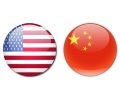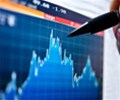In World Economy News 08/06/2018

Donald Trump’s top economic adviser, Larry Kudlow, called trade tensions shadowing the G-7 conference beginning Friday “a family quarrel” and said Trump will meet one-on-one with Canadian Prime Minister Justin Trudeau and French President Emmanuel Macron at the summit.
Trump is expected to attend the Group of Seven summit on Friday and Saturday with the leaders of the world’s largest economies before flying to Singapore for a historic meeting with North Korean leader Kim Jong Un on June 12.
Finance ministers from the six other nations participating in the summit issued a rare public rebuke during a preliminary meeting last week, saying they would retaliate against Trump’s decision to impose duties on steel and aluminum imports from the European Union, Canada, and Mexico.
The criticism has been particularly acute from the summit’s host, Canadian Prime Minister Justin Trudeau, who said Sunday the tariffs were “insulting” to the longstanding alliance between the U.S. and Canada.
“The idea that we are somehow a national security threat to the United States is, quite frankly, insulting and unacceptable,” Trudeau said in an interview with NBC News.
Kudlow rejected criticism of Trump and declined to describe the dispute as a “trade war.”
“Don’t blame Trump. Blame the nations that have broken away from” the world trade order, Kudlow told reporters at a White House briefing. He called Trump a “trade reformer.”
Further complicating the U.S. relationship with Canada is the ongoing effort to renegotiate the North American Free Trade Agreement, with both leaders saying they are willing to walk away from the pact if talks fail to produce a revised agreement to their liking. Trump has recently said he’d be interested in negotiating separate bilateral trade deals with Mexico and Canada instead of updating Nafta.
Some White House officials are discussing additional economic penalties in response to the $13 billion in retaliatory tariffs Trudeau has promised, the Washington Post reported Wednesday. Administration officials are also weighing whether to withhold Trump’s signature from the customary joint agreement issued at the end of the G-7 summit.
Kudlow denied another element of the Washington Post report: that Treasury Secretary Steven Mnuchin had advocated a softer approach toward Canada, including an exemption from the metals tariffs. The story was “patently false” and inaccurately depicted a meeting in which Mnuchin didn’t even speak, Kudlow said.
Source: Bloomberg







